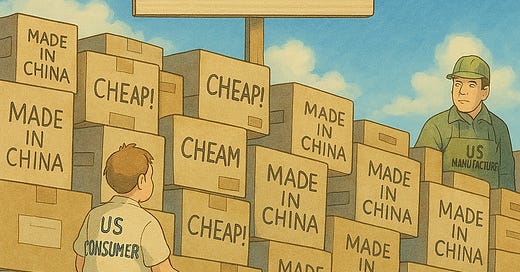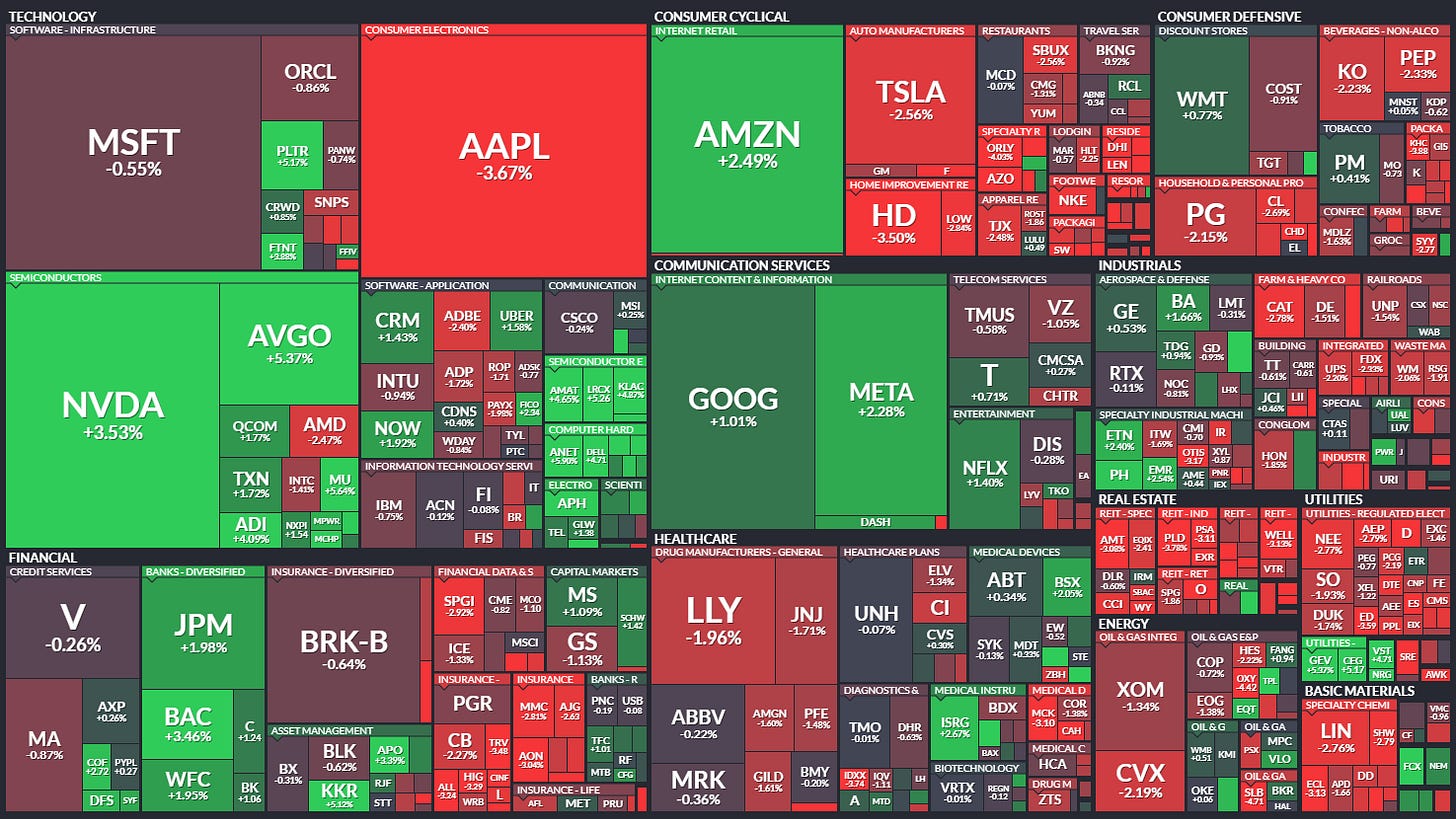The week kicked off with troubling signs for financial markets: major U.S. stock indexes closed mixed on Monday amid growing fears that the ongoing trade war between the U.S. and China could trigger a global recession.
The S&P 500 fell by 0.23%, hitting a 14-month low.
The Dow Jones dropped by 0.91%, reaching a 15-month low.
Meanwhile, the Nasdaq 100 rose by 0.19%, buoyed by a rally in tech giants.
June futures showed modest growth: the E-mini S&P climbed 0.30%, and the E-mini Nasdaq rose 0.71%. But this growth masks growing market turmoil.
Trump’s Trade Rhetoric Shakes Investor Confidence
Markets were rocked by President Trump’s aggressive stance. He ruled out removing tariffs and threatened new ones — up to 50% — unless China drops its own 34% tariffs on U.S. imports. This led to capital flight from equities and commodities.
A short-lived rebound came after false reports about a potential 90-day tariff pause. The White House quickly dismissed it as fake news, intensifying market anxiety.
Winners and Losers
Some tech giants helped limit broader losses. Amazon and Meta gained more than 2%, while Alphabet rose over 1%. This partially offset weaknesses in other sectors.
The energy sector suffered a double blow, with WTI crude prices hitting a 4-year low. Shares of Schlumberger, Occidental Petroleum, Chevron, and others saw sharp declines.
Travel and leisure stocks also fell as concerns about rising prices and lower consumer spending grew. Las Vegas Sands, Hilton, and MGM Resorts all posted losses.
Trade War Hits China and Small Caps
Chinese stocks listed in the U.S. fell sharply. Alibaba, JD.com, and NetEase dropped over 4% following China’s announcement of a 34% tariff on all U.S. imports.
Meanwhile, the Russell 2000 small-cap index entered bear market territory. Still, Morgan Stanley sees opportunity in high-ROE companies with strong momentum.
A Possible Lifeline?
Markets are beginning to price in potential Fed rate cuts. Odds of a 25 basis point cut in May jumped to 45%, up from 30% last week.
At the same time, macroeconomic data disappoints: U.S. consumer credit unexpectedly declined, while inflation expectations remain tense. CPI reports and the University of Michigan Consumer Sentiment Index, due this week, could be market movers.
Geopolitical Tensions Intensify Globally
Global markets tumbled in unison. The Euro Stoxx 50 fell 4.55%, the Shanghai Composite lost 7.34%, and Japan’s Nikkei dropped 7.83%. Investors fled to safe-haven assets, boosting demand for government bonds while commodity prices plummeted.
From Nvidia to Palantir
Nvidia strengthened its AI cloud services position by acquiring Lepton AI.
Apple is shifting some iPhone shipments from India to the U.S. to reduce reliance on Chinese production.
Tilray and Walgreens prepare to report earnings, with investor focus on revenue growth and M&A activity.
US Steel surged after President Trump ordered a national security review of its planned sale to Nippon Steel.
BlackRock CEO Larry Fink warned of recession risks but pointed out potential in undervalued stocks. In a world of slowing growth and trade friction, flexibility, adaptability, and a focus on quality assets may be key to long-term success.




